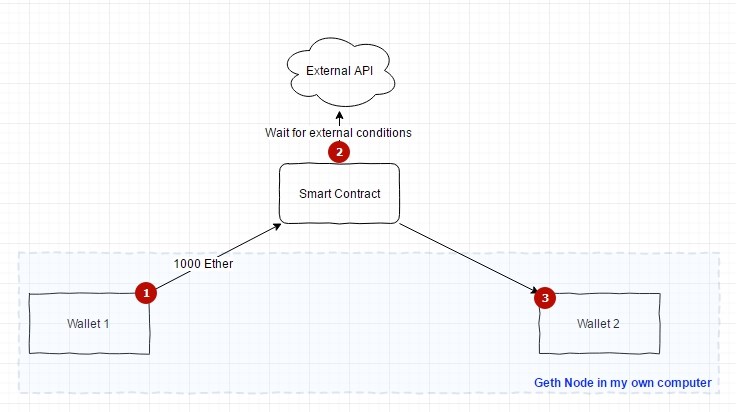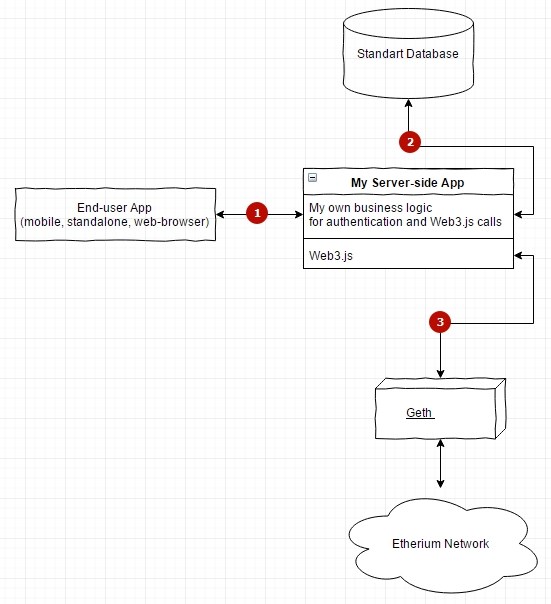Sorry for my English, again...
First I wanted to place this post on Etherium Reddit, if. If it needs to be there, just close this question...
I need to implement this logic:

- From Wallet 1 user sends to Smart Contract 1000 Ether, by calling a function in Smart Contract.
- Smart Contract holds 1000 Ether until some external event will not occuroccurs. Smart Contract checks this by polling information from external API. If this event does not occurs aoccur after two days e.g. Smart Contract revertreverts Ether.
- Smart Contract sends 1000 Ether to Wallet 2 (if the external condition of the previous paragraph is successfulstep does occur).
But I need do this for users who can`t have blockchain ("Etherium Wallet" app e.g.) on own computers.
And here's the next image...

- Standart authentication - Login/Pass, OAuth, not important...
- We identified the user credentials and associate it with a particular Wallet Account (0x123...).
- Now we sendssend commands to the Geth with using the Wallet Account of the previous paragraph.
- Finally, end-user has a limited set of possibilities by using the UI in own applicationthe end-user app.
It'sIs it okay to do this server-side layer, and do some authentication?
